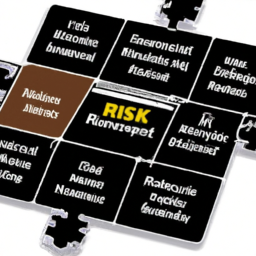Are you ready to take your project management skills to the next level? Project Cost Management is the key to achieving success and ensuring that your projects stay within budget.
In this step-by-step guide, we will walk you through the process of effectively managing project costs from start to finish.
Imagine this: you’re working on a project and everything is going smoothly. The team is working together seamlessly, the deadlines are being met, and the deliverables are top-notch. But then, you receive the dreaded email from the finance department – your project has gone over budget. Suddenly, all your hard work feels like it’s been in vain.
But fear not! With proper Project Cost Management, you can avoid these budgetary pitfalls and keep your projects on track. By planning and defining project costs, developing a detailed budget, and implementing cost-saving strategies, you can ensure that your projects are completed within budget and meet all financial goals.
So, whether you’re a seasoned project manager or just starting out, this guide is for you. Get ready to dive into the world of Project Cost Management and set yourself up for success. Let’s get started!
Key Takeaways
- Proper project cost management is crucial for success and staying within budget.
- Thorough analysis of project requirements and risks helps identify cost drivers.
- Developing a detailed budget is crucial for project success.
- Regularly updating the cost tracking system and conducting cost analysis are essential for accurate tracking and corrective action.
Understand the Importance of Project Cost Management
Understanding the importance of project cost management isn’t just about avoiding budget overruns, but it’s also about making strategic decisions that align with the organization’s financial goals. Effective cost estimation is crucial in order to accurately forecast project expenses and allocate resources accordingly.
By conducting a thorough analysis of project requirements, timelines, and potential risks, you can identify potential cost drivers and develop contingency plans to mitigate any financial uncertainties. Implementing cost management techniques such as cost tracking and control allows for real-time monitoring of project expenses, enabling you to proactively identify and address any deviations from the budget.
This level of detail-oriented and analytical approach ensures that project costs are managed efficiently and enables you to make informed decisions throughout the project lifecycle.
Transitioning into the subsequent section about ‘plan and define project costs’, it’s essential to lay a solid foundation for project cost management by outlining a comprehensive plan that outlines the cost components and methods for tracking and controlling expenses.
Plan and Define Project Costs
To effectively estimate the expenses, it’s crucial to first lay out and define the projected costs for the project, keeping in mind the adage ‘A penny saved is a penny earned.’
Here are three key steps to plan and define project costs:
-
Utilize Estimating Techniques: Use various techniques such as analogous estimating, parametric estimating, and bottom-up estimating to determine the costs involved. These techniques rely on historical data, industry benchmarks, and expert judgment to provide accurate estimates.
-
Create a Cost Breakdown Structure: Develop a hierarchical breakdown of all the project costs, starting from the top-level project cost down to the individual tasks and activities. This structure helps in organizing and categorizing costs, making it easier to track and manage expenses.
-
Assign Cost Estimates: Once the cost breakdown structure is in place, assign estimated costs to each task or activity. This involves analyzing the resources required, considering labor, materials, equipment, and any other expenses involved.
By following these steps, you can effectively plan and define the project costs, ensuring a solid foundation for the subsequent section on developing a detailed budget.
Develop a Detailed Budget
Take a moment to envision your project’s success as you dive into developing a detailed budget, ensuring that every aspect of your financial plan aligns perfectly with your goals and aspirations.
To start, you need to utilize effective estimating techniques to accurately determine the costs associated with each component of your project. By using historical data, expert judgment, and analogous estimating, you can make informed decisions about the financial resources required.
Additionally, cost breakdown is crucial in developing a detailed budget. Break down your project into smaller work packages and identify the specific costs associated with each one. This level of detail will help you allocate resources efficiently and avoid any surprises down the line.
As you move forward, remember that a well-developed budget is the foundation for successful project cost management.
Next, let’s explore how you can monitor and control project costs seamlessly.
Monitor and Control Project Costs
Now that you’re knee-deep in managing your project’s finances, it’s time to buckle down and keep a close eye on those dollars and cents. Effective cost tracking and analysis are crucial to ensure that your project stays within budget and to identify any potential cost overruns early on. Here are two key steps to monitor and control project costs:
-
Regularly update your cost tracking system: Maintain a detailed record of all project expenses, including labor, materials, and overhead costs. Update this information regularly to ensure accurate cost tracking.
-
Conduct regular cost analysis: Analyze your project costs to identify any variances between the actual costs and the budgeted costs. This will help you identify areas where you may need to take corrective action, such as reallocating resources or renegotiating contracts.
By closely monitoring and analyzing your project costs, you can proactively address any potential issues and ensure that your project stays on track financially.
In the next section, we’ll discuss how to implement cost-saving strategies.
Implement Cost-saving Strategies
Implementing cost-saving strategies can be a challenging task, but it’s essential for maximizing the financial efficiency of your project. Cost optimization is crucial to ensure that your project stays within budget and delivers the desired outcomes.
There are several cost reduction strategies that you can employ to achieve this. First, identify areas where you can cut unnecessary expenses without compromising the quality of your project. This could include negotiating better deals with suppliers or finding alternative, more cost-effective solutions.
Additionally, consider streamlining processes and eliminating any redundant activities that are driving up costs. By implementing these strategies, you can significantly reduce project expenses and allocate resources more effectively.
In the subsequent section about ‘evaluate and learn from project cost management,’ you’ll gain insights on how to measure the success of your cost-saving efforts and improve future projects.
Evaluate and Learn from Project Cost Management
Improve your financial efficiency and ensure future project success by evaluating and learning from your project’s cost management.
Evaluating project cost performance is essential to identify any discrepancies between the planned and actual costs. By analyzing the data and trends, you can gain valuable insights into the effectiveness of your cost management strategies.
Look for areas where costs exceeded the budget and determine the reasons behind it. This evaluation will help you identify any mistakes or inefficiencies in your cost estimation, budgeting, or control processes.
Once you have identified these areas, take proactive measures to learn from them. Use this knowledge to refine your cost management approach, enhance accuracy in future projects, and avoid repeating similar mistakes.
Continuous evaluation and learning from cost management mistakes are crucial for achieving optimal financial outcomes in your projects.
Frequently Asked Questions
How can I effectively communicate project cost management to stakeholders?
To effectively communicate project cost management to stakeholders, it’s crucial to prioritize stakeholder engagement and employ effective communication strategies.
This involves actively involving stakeholders in the project and providing them with regular updates on cost management. By using clear and concise language, sharing relevant data and analysis, and addressing any concerns or questions promptly, you can ensure that stakeholders have a comprehensive understanding of the project’s cost management process and feel confident in your ability to manage costs effectively.
What are some common challenges in project cost management and how can they be overcome?
Overcoming challenges in project cost management is like navigating a treacherous mountain pass. One common challenge is accurately estimating costs. This can be overcome by conducting thorough research and using historical data.
Another challenge is managing scope creep, which can be addressed by clearly defining project scope and continuously monitoring changes.
Additionally, resource allocation can be a challenge, but can be overcome by carefully planning and prioritizing resources.
By addressing these challenges head-on, project cost management can be effectively executed.
How do I ensure accuracy and reliability in project cost estimation?
To ensure accuracy and reliability in project cost estimation, there are key considerations and estimation techniques you can employ.
Firstly, ensure that you’ve gathered all necessary data and information related to the project.
Then, use proven estimation techniques such as bottom-up estimation or parametric estimation to break down the project into smaller components and estimate costs for each.
Additionally, regularly update and validate your estimates as the project progresses to maintain accuracy and reliability.
What are some best practices for tracking and controlling project costs?
To ensure accurate tracking and control of project costs, it’s crucial to implement best practices.
Start by monitoring costs regularly to stay on top of any deviations from the budget.
Optimize cost management by identifying cost drivers and implementing strategies to minimize them.
Use tools like budgeting software and project management systems to streamline the process.
Analyze cost data, identify trends, and make informed decisions to keep project costs under control.
Stay organized and detail-oriented to ensure accuracy and reliability throughout the project.
How can I justify the need for additional budget or resources during the project execution phase?
To justify the need for additional budget or resources during the project execution phase, you can employ various justification techniques and budget allocation strategies.
Start by analyzing the project’s current status and identifying any potential gaps or deficiencies.
Then, present a detailed cost-benefit analysis, highlighting the benefits of the additional budget or resources in terms of increased efficiency, improved quality, or accelerated project delivery.
Additionally, consider utilizing benchmarking data or industry standards to support your justification and demonstrate the necessity of the requested resources.
Conclusion
Congratulations! You’ve successfully navigated through the intricate world of project cost management. Like a skilled conductor orchestrating a symphony, you’ve meticulously planned, defined, and controlled every aspect of your project’s financial journey. Your detailed budget served as a compass, guiding you towards success.
Through vigilant monitoring and implementation of cost-saving strategies, you’ve not only achieved your goals but also saved precious resources. As the curtain falls on this chapter, remember to evaluate and learn from this experience, for it holds the key to your future triumphs.















